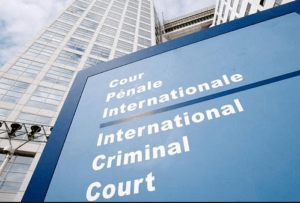War crimes court refers Djibouti and Uganda to UN
 The governments of Djibouti and Uganda have been referred by the International Criminal Court to the UN and the ICC’s Assembly of States Parties (ASP) for their failure to arrest Sudanese President Omar al-Bashir – who is facing war crimes charges at the court – when he visited these countries.
The governments of Djibouti and Uganda have been referred by the International Criminal Court to the UN and the ICC’s Assembly of States Parties (ASP) for their failure to arrest Sudanese President Omar al-Bashir – who is facing war crimes charges at the court – when he visited these countries.
The Sudanese leader, for whom the ICC has issued two arrest warrants, is facing five counts of crimes against humanity, two counts of war crimes and three counts of genocide allegedly committed in the Darfur Region in western Sudan.
According to the Rome Statute of the ICC, state parties are obliged to execute two arrest warrants for President al-Bashir issued on March 18, 2009 and August 31, 2010.
The Sudanese president visited Djibouti on May 8 for the inauguration of President Ismail Omar Guelleh and Uganda onMay 11 for the inauguration of President Yoweri Museveni, both of whom had won controversial elections.
But, according to the ICC’s Pre-Trial Chamber II, both countries “failed to comply with the request for arrest and surrender of Omar al-Bashir to the ICC”.
“It is now up to them to take the measures they deem necessary regarding this matter,” the ICC said in a statement.
In its defence, Djibouti argued that it did not have the “national procedures required” to apprehend and surrender ICC suspects; that as a sitting head of state, President al-Bashir had immunity; that Djibouti, as a member of the African Union, “must respect the decision” of the pan-African body for member states to not comply with the ICC’s arrest warrants regarding President al-Bashir; and as a member of the Intergovernmental Authority and Development (IGAD) Djibouti was involved in the peace process in Sudan and South Sudan.
In the case of Uganda, the government said that inviting President al-Bashir to the inauguration was because it was important to maintain good relations with all countries in the region in order to maintain peace and security.
Uganda added that “continuous engagement of all leaders, al-Bashir included, is both important and avoidable.”
Uganda’s relationship has gone full circle since it became the first country to refer a case to the ICC in respect of the Lord’s Resistance Army (LRA) on December 16, 2003, following which the court issued warrants for the arrest of four of the rebel group’s senior commanders, including its leader, Joseph Kony.
President Museveni, who had embraced the ICC enthusiastically, is now a strong critic of its activities in Africa.
In the case of Djibouti, it recently came under the ICC spotlight following violence by government security forces against opponents of President Guelleh, culminating in the death of 19 civilians, including a six-year-old child, last December.
The run up to April’s presidential election, in which President Guelleh contested for a controversial fourth term, was marked by violence against members of the opposition parties.
The president has been under pressure, both locally and internationally, to open up the democratic space, but he has been reluctant to do so.
“His refusal to cooperate with the ICC is yet another example of how Guelleh is disregarding public opinion and doing what he likes,” an opposition source told the GNA.
“He has been ignoring advice from long-standing allies, the US and France, while reaching out to the Chinese.”
“Guelleh knows that because of the strategic position of Djibouti he can ignore what these countries are saying.”
This was an issue raised recently by Pete Hoekstra, who served as Chairman of the US House Intelligence Committee from 2004 to 2007.
Noting that President Barack Obama would soon be leaving office, he writes in Foreign Policy magazine about what he said would be a “growing void in global leadership” – more so in the Horn of Africa and particularly in Djibouti.
“Here, despite playing host to a strong American military presence for more than a decade, and providing a strategic base in the fight against radical jihadists, Djibouti, led by despotic President Ismail Omar Guelleh, is shifting ever closer to the Chinese,” he argues.
“Not surprisingly, what China gains in influence, Djiboutians lose in freedom, America loses leverage, and where everyone has to be aware that political oppression is on the rise.
“When President Guelleh’s troops opened fire on opposition activists last December killing 19, NGOs were quick to call on the international community to respond; yet the Obama and the US refused,” Hoekstra adds.
“In addition to rising political oppression, Guelleh’s government is actively working to suppress media freedom in the country.
“Reporters Without Borders highlighted Djibouti’s deliberate policy to close access to local and external media and the European Union condemned the lack of independent press in the country,” Hoekstra writes.
“Even Mark Zuckerberg was thrown into the fray after President Guelleh brought legal proceedings against Facebook over what he claims are offensive posts about him on the social media site.”
Added to all of these, the government spent some $90 million on unsuccessfully chasing one of President Guelleh’s former confidants, Abdourahman Boreh, in the British courts on tramped up charges of treason, and bribery and corruption.
Source: GNA
